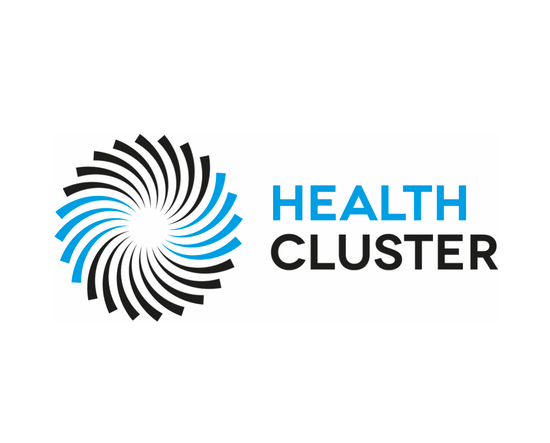
Health Clusters exist to relieve suffering and save lives in humanitarian emergencies, while advancing the well-being and dignity of affected populations. Since 2005, the Cluster Approach, including the Health Cluster, has been one of the most commonly used coordination mechanisms to meet the humanitarian needs of affected people in a reliable, effective and inclusive manner, whilst respecting humanitarian principles.
Health Clusters collectively prepare for and respond to humanitarian and public health emergencies to improve the health outcomes of affected populations through timely, predictable, appropriate and effective coordinated health action.
As the number, scale and severity of humanitarian and health crises continues to increase, so does the need for effective Health Cluster leadership and coordination and to ensure that timely, high quality and impactful learning and training activities are available to Health Cluster/Sector teams, partners and health focal points at the global, regional and country level.
Language: English
Health topic
Course information
Overview: The Global Health Cluster (GHC) has developed this Health Cluster Coordination eLearning course in order to increase the skills and knowledge of Health Cluster teams and partners and to strengthen the efficiency and accountability of all stakeholders in responding to humanitarian crises.
Learning objectives: The objectives of the Health Cluster Coordination eLearning course are to:
- Build and strengthen the capacity of Health Cluster and Health Sector Coordinators (and Co-Coordinators) to lead and coordinate the planning, implementation and monitoring of more effective, efficient, timely and predictable evidence-based humanitarian health interventions in acute and protracted emergencies.
- Strengthen the capacity of Health Cluster Team Members at the national and sub-national levels to plan, implement and monitor more effective, efficient, timely and predictable evidence-based humanitarian health interventions in acute and protracted emergencies through strengthened planning, implementation and monitoring of efficient, timely and predictable evidence-based humanitarian health interventions in acute and protracted emergencies.
- Motivate and equip Health Cluster Partners to effectively and collaboratively strengthen the planning, implementation and monitoring of efficient, timely and predictable evidence-based humanitarian health interventions in acute and protracted emergencies.
Course duration: Approximately 9 hours.
Certificates: To complete the course, you will need to receive two certificates:
- A Certificate of Participation: A Certificate of Participation will be provided to course participants who complete at least 80% of the course content.
- A Record of Achievement: A Record of Achievement will be provided to course participants who receive an overall score of 80% or more after attempting all module assessments.
Participants who receive a Record of Achievement can also download an Open Badge for this course. Click here to learn how.

Course contents
Module 1: Introduction:
Introduction introduces the Health Cluster Coordination eLearning course.Module 2: Global Commitments for Humanitarian and Public Health Emergencies:
Global Commitments for Humanitarian and Public Health Emergencies describes the work of the World Health Organization (WHO) and of the Health Cluster at the global level.Module 3: Health Cluster Coordination: Principles and Functions:
Health Cluster Coordination: Principles and Functions explains the guiding principles, roles and functions of the Cluster Lead Agencies and of the Health Cluster.Module 4: Public Health Information Services (PHIS) Standards:
Public Health Information Services provide a range of information management activities and products during the different phases of an emergency.Module 5: Needs Assessment:
Needs Assessment describes the key principles and types of needs assessments available to identify and measure the needs of affected populations to inform the health response.Module 6: Public Health Situation Analysis:
Public Health Situation Analysis highlights the main existing public health needs and potential threats, in order to orient public health action and resource mobilisation.Module 7: The Health Resources Availability Monitoring System (HeRAMS) Approach:
The HeRAMS Approach is a standardised Health Cluster approach that aims at strengthening the collection, collation and analysis of information on the availability of health resources and services in the humanitarian context.Module 8: Humanitarian Response Planning:
Humanitarian Response Planning articulates response to assessed and expressed needs after a crisis, works towards the same goals, and follows an evidence-based process.Module 9: Cross-Cutting Issues:
Cross-Cutting Issues tackle social markers of exclusion to ensure equal access to health care services to affected populations.Module 10: Inter-Cluster Coordination:
Inter-Cluster Coordination provides a platform for clusters to work together in delivering assistance to affected populations.Module 11: The Humanitarian Development and Peace Nexus:
The Humanitarian Development and Peace Nexus explains the responsibilities of the international community towards populations affected by crisis to ensure complementary interventions from humanitarian, development and peace-building actors.Module 12: Health Advocacy:
Health Advocacy promotes equity and effectiveness of health services across crisis-affected contexts.Module 13: Resource Mobilisation:
Resource Mobilisation details how to track funds and mobilise resources.Module 14: Humanitarian Health Response Monitoring:
Humanitarian Health Response Monitoring enables standardised monitoring of the humanitarian services provided to affected populations.Module 15: Cluster Coordination Performance Monitoring (CCPM):
The Cluster Coordination Performance Monitoring monitors coordination performance of clusters at the national and sub-national level during crises.Module 16: Humanitarian Preparedness and Contingency Planning:
Humanitarian Preparedness and Contingency Planning helps to make a coordinated emergency response to crises, and strengthens governments’ capacity to better respond to disasters.Module 17: Transition and Deactivation of Clusters:
Transition and Deactivation of Clusters details the cluster activation, transition and deactivation process.
Enroll me for this course
Featured content
Certificate Requirements
- Gain a Record of Achievement by earning at least 80% of the maximum number of points from all graded assignments.
- Gain a Confirmation of Participation by completing at least 80% of the course material.
- Gain an Open Badge by completing the course.